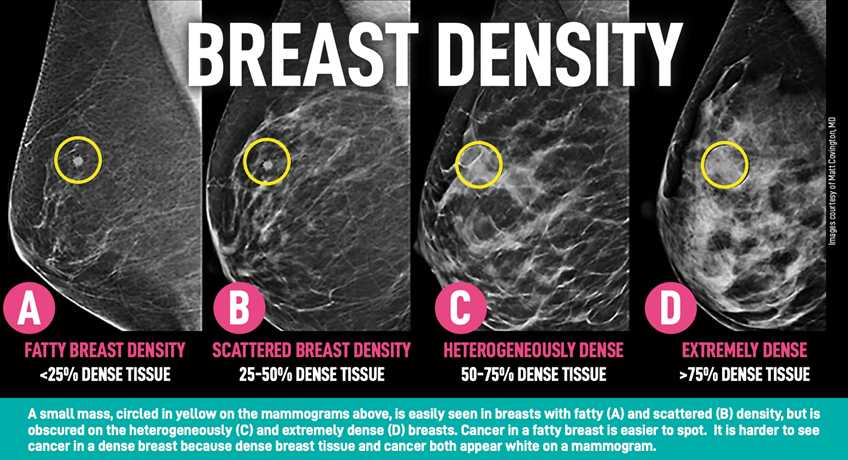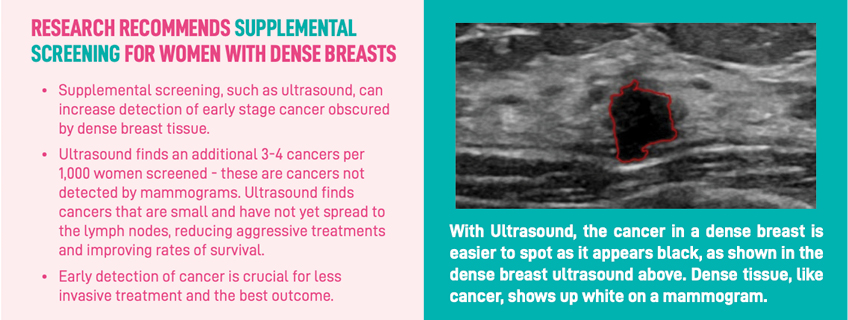
Breast Density and Your Mammogram
Breast density is a measure of how much fibrous and glandular tissue (also known as fibroglandular tissue) there is in your breast, as compared to fat tissue. It isn’t related to breast size or firmness.
There are 4 categories of breast density according to mammography. They go from almost all fatty tissue to extremely dense tissue with very little fat. The radiologist looks at your mammogram to determine which of the 4 categories best describes how dense your breasts are:
- The breasts are almost entirely fatty
- There are scattered areas of fibroglandular density
- The breasts are heterogeneously dense, which may obscure small masses
- The breasts are extremely dense, which lowers the sensitivity of mammography
The FDA identifies category C and D breasts as DENSE BREASTS.

Why Does Breast Density Matter?
Women who have dense breast tissue have a higher risk of breast cancer compared to women with less dense breast tissue. Dense breast tissue also makes it harder for radiologists to see cancer on mammograms.

So you have dense breasts (category C or D), what now?
The value of additional, or supplemental, imaging tests such as ultrasound or MRI to screen for breast cancer in women with dense breasts is not yet clear.
There’s some evidence that additional tests may make it more likely that breast cancer is detected in dense breast tissue. But additional tests carry additional risks. Also, to date no additional testing method is proven to reduce the risk of dying of breast cancer.
Based on the lack of data demonstrating a clear benefit, the American College of Obstetricians and Gynecologists (ACOG) currently has not changed their recommendations to add the routine use of alternative or adjunctive tests to screening mammography in individuals with dense breasts who have no symptoms and have no additional risk factors.
The doctors at WHOA have decided to offer breast ultrasound to all patients with category C or D breasts and will place a referral for this screening. If you do not want additional screening or have questions, please talk with your physician.
